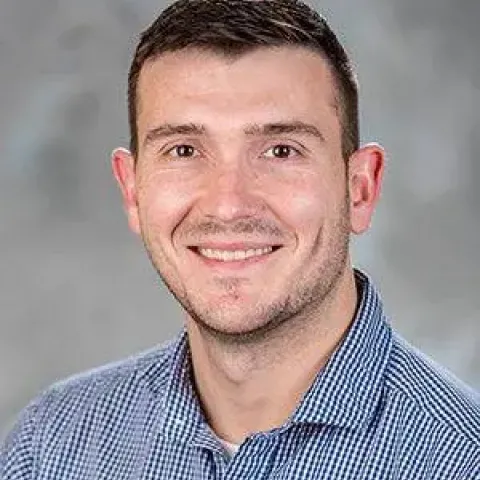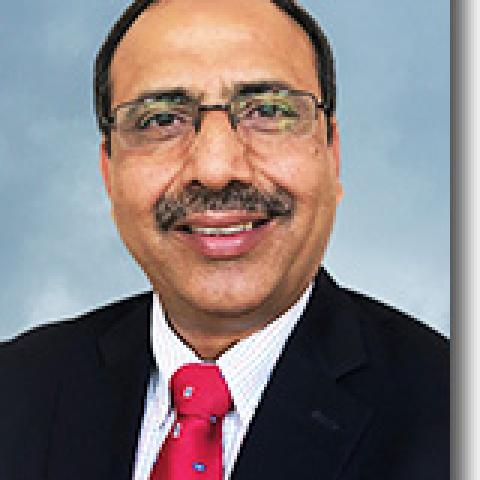Sankar Nair

Nanomaterials; Biofuels; Carbon Capture; Catalysis; Separations Technology; Chemical Recovery; Energy & Water

Nanomaterials; Biofuels; Carbon Capture; Catalysis; Separations Technology; Chemical Recovery; Energy & Water

Muhlstein has worked as an engineering consultant at Exponent, Inc. (Failure Analysis Associates). In September, 2002 he joined the faculty in the Department of Materials Science and Engineering at The Pennsylvania State University and was tenured and promoted to associate professor in 2008.
Muhlstein’s research focuses on understanding the mechanisms of fracture and fatigue in bulk and thin film materials. Muhlstein is a member of Alpha Sigma Mu and Keramos honor societies and an NSF CAREER award recipient. In 2007 he was also named the Corning Research Faculty Fellow in Materials Science and Engineering at The Pennsylvania State University.
Fracture and Fatigue; Thin Films; Polymeric Composites; Advanced Characterization; Nanomaterials; Structural Materials; Paper & Board Mechanics; Biomaterials; Nanocellulose Applications; Biocomposites; New Materials


Dr. Akanksha Menon is an Assistant Professor in the Woodruff School of Mechanical Engineering at Georgia Tech. Prior to this, she was a Rosenfeld Postdoctoral Fellow at Lawrence Berkeley National Laboratory, where she performed research on hybrid membrane-thermal desalination processes using solar energy, and she also contributed to the development of thermal energy storage materials. Dr. Menon completed her Ph.D. at Georgia Tech, where she focused on developing semiconducting polymers and new device architectures for thermoelectric energy harvesting. She holds a bachelor's degree from Texas A&M University at Qatar, as well as a master’s degree in Mechanical Engineering from Georgia Tech.
Her research group at Georgia Tech is working on technologies for the water-energy nexus.

Meredith is the Executive Director of the Georgia Tech Renewable Bioproducts Institute, and the James Harris Faculty Fellow in ChBE.
Meredith's group researches the surfaces and interfaces of advanced materials. Their work aims to apply fundamentals of polymer, surface and colloid science to find new ways to engineer materials useful to society and industry. In particular, projects emphasize the utilization of renewable components and sustainable processing to achieve circular manufacturing and use of plastics, composites, foams and coatings, among others. Many of these materials are critical for food security, energy efficiency, and are closely connected to greenhouse gas reduction.
Catalysis; Cellulosic Nanomaterials; Separation Technologies; Nanocellulose Applications; Aerogels & Hydrogels; Films & Coatings; Coatings & Barriers; Biomaterials

Dr. Medford is interested in leveraging materials informatics, statistics, and machine learning to maximize the practical impact of fundamental atomic-scale simulations in the field of surface science and catalysis. His research areas include heterogeneous catalysis, oxide surface chemistry, density functional theory, kinetic models, uncertainty quantification, and Bayesian optimization and inference.

Matthew McDowell joined Georgia Tech in the fall of 2015 as an assistant professor with a joint appointment in the George W. Woodruff School of Mechanical Engineering and the School of Materials Science and Engineering. Prior to this appointment, he was a postdoctoral scholar in the Division of Chemistry and Chemical Engineering at the California Institute of Technology. McDowell received his Ph.D. in 2013 from the Department of Materials Science and Engineering at Stanford University.
McDowell’s research group focuses on understanding how materials for energy and electronic devices change and transform during operation, and how these transformations impact properties. The group uses in situ experimental techniques to probe materials transformations under realistic conditions. The fundamental scientific advances made by the group guide the engineering of materials for breakthrough new devices. Current projects in the group are focused on i) electrode materials for alkali ion batteries, ii) materials for solid-state batteries, iii) interfaces in chalcogenide materials for electronics and catalysis, and iv) new methods for creating nanostructured metals.
Batteries; Nanostructured Materials; Composites; Fabrication; Energy Storage; Thermal Systems

Jamshad Mahmood has over 23 years of experience in corrosion testing and manufacturing of recovery boilers and pressure vessels. He is a Mechanical/Research Engineer with expertise in the design, manufacturing of industrial equipments and conducting lab corrosion testing e.g., slow strain rate corrosion testing, electrochemical corrosion testing, high-temperature aqueous corrosion testing and molten salts corrosion testing. In addition to laboratory experimentation, Jamshad conducted several field studies evaluating in-situ corrosion of pulp mill equipments e.g., digesters, paper machines, storage tanks and recovery boiler tubes. He manages the corrosion laboratories and chemical inventories for the corrosion group. Prior to joining the Institute of Paper Science and Technology in 1997, he worked as Manager Production for 8 years with Descon Engineering Works – one of the large boiler manufactures.

- - - - - - - - - - - - - - - - - - - - -
Professor of the Practice
School of Chemical and Biomolecular Engineering
College of Engineering, Georgia Institute of Technology
Associate Director, Pulp, Paper, Packaging and Tissue, Renewable Bioproducts Institute, an Interdisciplinary Research Institute at GT
Director, GT Pulp and Paper Engineering Undergraduate Certificate Program and Foundation
Brief Biography:
Luettgen has 25 plus years of industry experience, with Scott Paper and Kimberly-Clark Corp., where he most recently served as head of North American Innovation the Kimberly-Clark Professional business sector. He has held positions in product development and innovation as well as in capital project management and manufacturing facility leadership.
For several years, Luettgen has served on the Georgia Tech Renewable Bioproducts Institute Industry Board of Advisors, and as the Chairman of the Board of the Technical Association of the Pulp & Paper Industry (TAPPI). He earned his bachelor's degree in Paper Engineering at Western Michigan University (’85), his master’s degree at the Institute of Paper Chemistry, Appleton, WI (’87), and his Ph.D. in Surface Chemistry at the Institute of Paper Science and Technology - now the Renewable Bioproducts Institute at Georgia Tech (’91).
He rejoined Georgia Tech in November 2014 as a Professor of the Practice in the School of Chemical and Biomolecular Engineering, and Associate Director of Pulp, Paper, Tissue and Packaging at RBI. He also serves as the Director of the undergraduate Pulp and Paper Certificate Program and its Foundation.
Areas of research interest include: Recycling; renewable cellulosic feedstocks; replacing fossil-based products with bio-based materials; commercialization of nanocellulosic materials in consumer and packaging products; Smart Manufacturing and Industry 4.0; tissue/towel manufacturing and converting; and manufacturing leadership / operational excellence.

Materials and Nanotechnology; Complex Systems; Biotechnology